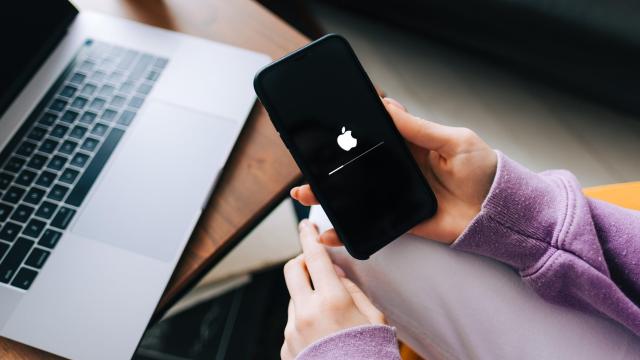Apple’s big iPhone update, iOS 15, is chock full of fun features. We’ve highlighted 36 we find particularly interesting or useful. But it’s not for everyone. If you don’t feel like adding a slew of new changes to the iPhone you’ve come to know inside and out, but want the security that comes with a new update, there’s a way around it.
Why installing the latest update is usually essential
Normally, we recommend you update your iPhone to the latest update as soon as it drops. That’s because, unlike Android, Apple traditionally packs new features and big fixes together with the latest security patches.
In the tech world, security vulnerabilities are an inevitability. When a new one is discovered — whether or not hackers have exploited it — Apple works quickly to fix it, and adds it to the next update. The latest example of that is with iOS 14.8; the update patched a known iMessage exploit that could install malware on your iPhone without you needing to do anything at all.
That patch was so important that Apple released it Sept. 13, even though the company planned to release iOS 15 on Sept. 20. An exploit that dangerous couldn’t be left alone in the wild for another week.
Apple changes the security game with iOS 15
With iOS 15, though, Apple is finally untethering security updates from feature updates. That allows you to stay on your current version of iOS without sacrificing your iPhone’s security, a win-win for everybody (besides hackers, I guess).
When iOS 15 is available on your device, you can go to Settings > General > Software Update. Instead of following the on-screen instructions to download and install the new update, you should see an option to skip this update. That will allow you to stay on iOS 14.8; if a new security update is available in the future, you’ll be able to install that without installing the latest version of iOS 15, either.
Of course, any time you want to jump onto the latest version of iOS, you can.
New updates can be taxing on ageing hardware
Since Apple devices are lasting longer than ever these days, older and older devices are able to support the latest iOS updates. My iPad Air 2, released in 2014, is still chugging along with iOS 14.8. Somehow, the dinosaur also supports iOS 15; how well that software will run, however, is another question.
This new feature lets you opt-out of installing iOS 15 on devices as old as the Air 2, or even the iPhone 6S, in case you’re worried they won’t be able to handle the new software. Unfortunately, if you choose to update to iOS 15, there’s no turning back; once Apple stops signing on iOS 14.8, you won’t be able to downgrade your device back.
If you’re concerned, you’re better off keeping it on 14.8, then researching how well your device seems to run on iOS 15. If Apple did a good job optimising the software for your legacy tech (the company did remove certain features for older devices) you can then update worry-free.

Leave a Reply
You must be logged in to post a comment.